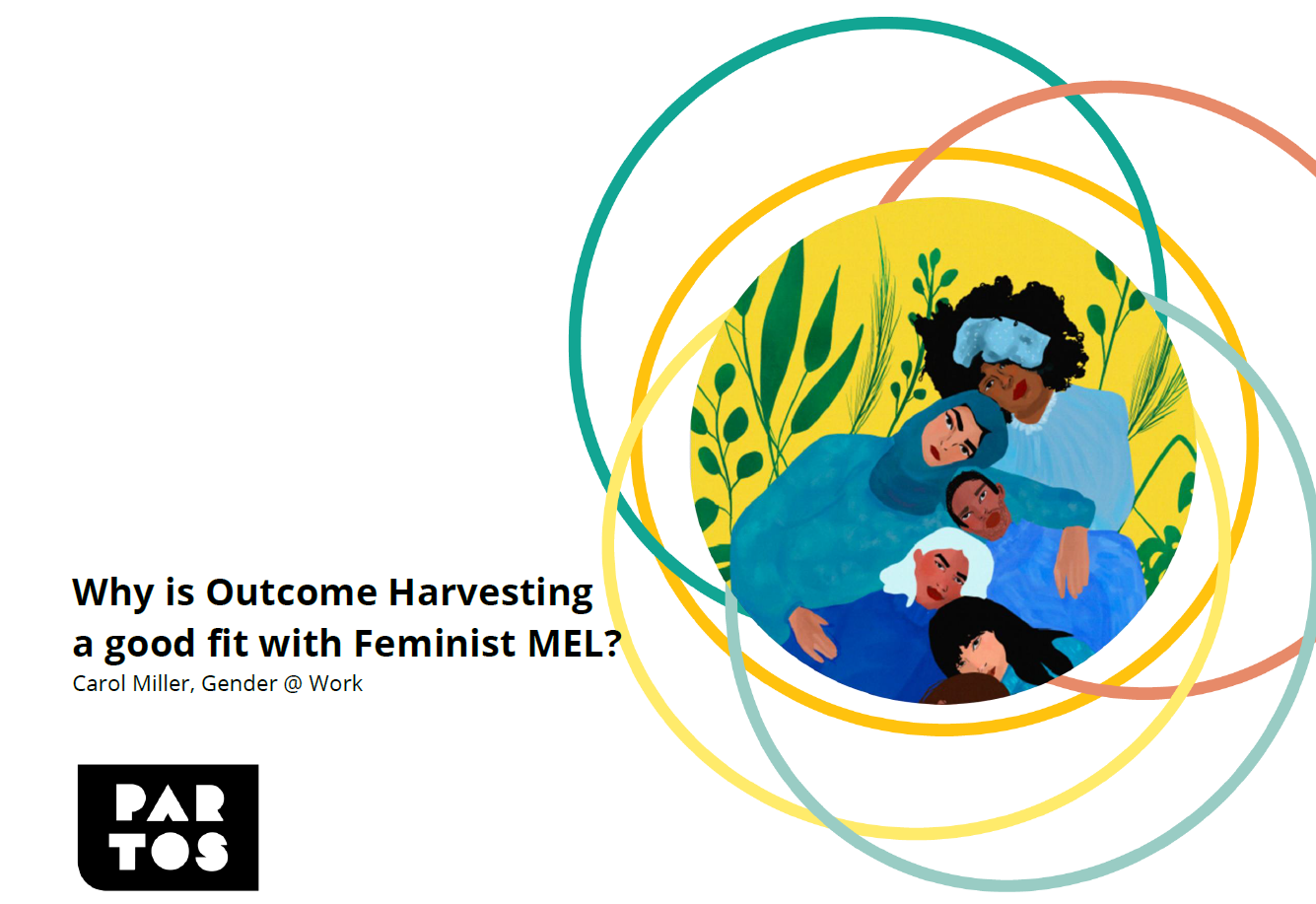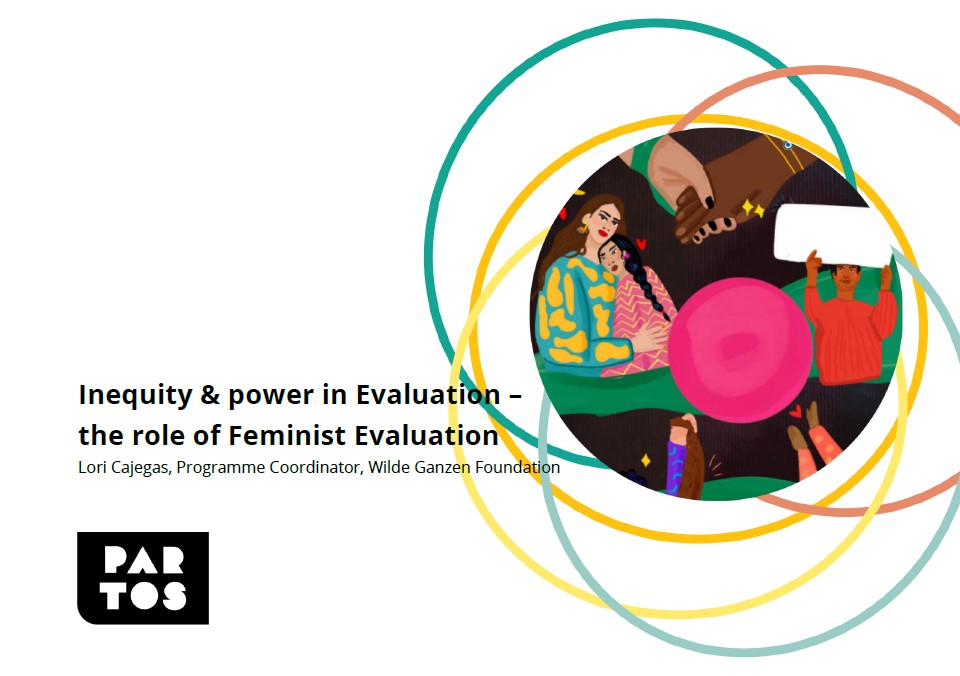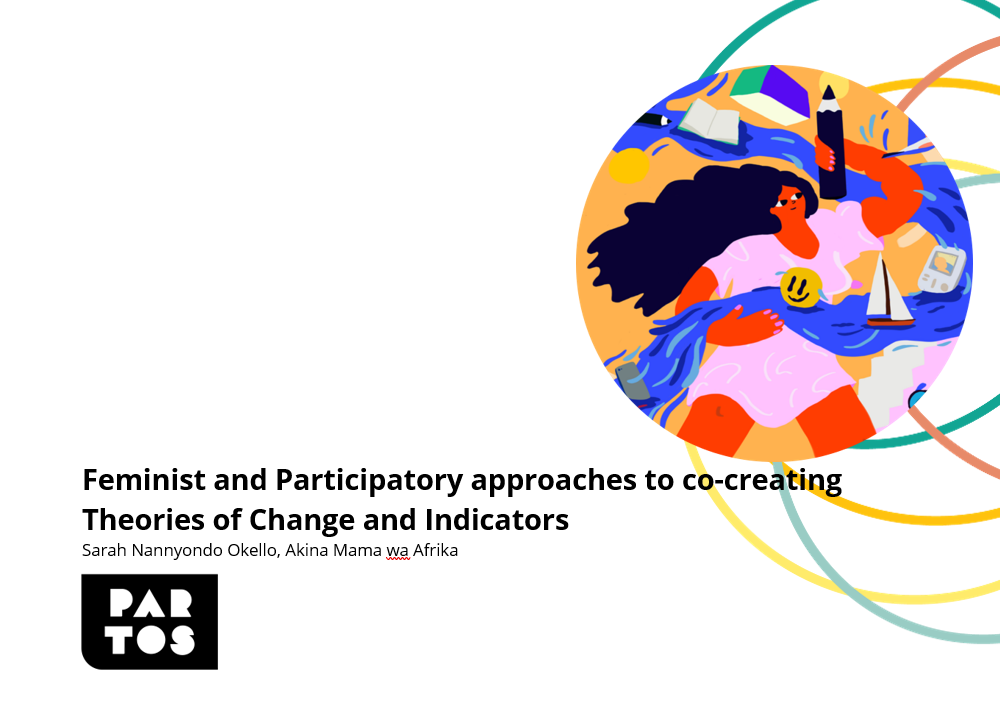
Three blogs on Feminist MEL
We began by exploring the key principles of Feminist MEL, which has led to this publication. To delve deeper into the practical implementation of these principles, we hosted three additional learning sessions, focusing on planning for a summative evaluation, a Feminist approach to Outcome Harvesting and Feminist approaches to co-creating Theories of Change and indicators. With the rich knowledge and experiences shared during these sessions, it is now crucial to ask ourselves: Where do we currently stand in relation to Feminist MEL?
In this three-part blog series, we reflect on this question and share our hopes for the future of international development in the light of Feminist MEL.
1. Inequity & power in Evaluation – the role of Feminist Evaluation
In this blog, Lori Cajegas explains the importance of Feminist MEL as an essential approach for decolonisation. “We cannot decolonise the development sector without making MEL more equitable and useful to those directly impacted by change.” She states that the current MEL frameworks strongly steer towards outcomes, results and values. But who is judging those outcomes? Mostly, not the local organisations. What if we didn’t focus on our own measure of value but ask communities to define what is valuable to them?
2: Why is Outcome Harvesting a good fit with Feminist MEL?
In this blog, Carol Miller explains the importance of outcome harvesting for Feminist MEL. Outcome Harvesting is a monitoring and evaluation methodology used to identify, describe, verify and analyse the changes brought about through a development intervention. Many aspects of Outcome Harvesting align well with feminist MEL.
In this blog, she shows that outcome harvesting as an MEL methodology centres the lived experiences and perspectives of women most involved in an “intervention”: they are not just participants but are directly engaged. Carol Miller shares 3 key take-aways on outcome harvesting and Feminisit MEL, and shares her hope to join forces for a paradigm shift in evaluation.
3. Feminist and Participatory approaches to co-creating Theories of Change and Indicators
Rethinking impact measurement! Traditional development models often reinforce systemic inequalities, but what if communities had the power to define change on their own terms?
In this blog, Sarah Nannyondo Okello of Akina Mama wa Afrika pleads for a feminist, participatory approach to MEL to shift decision-making to those most affected—capturing real stories, not just numbers. Read more about how co-creating Theories of Change can drive true social transformation.

